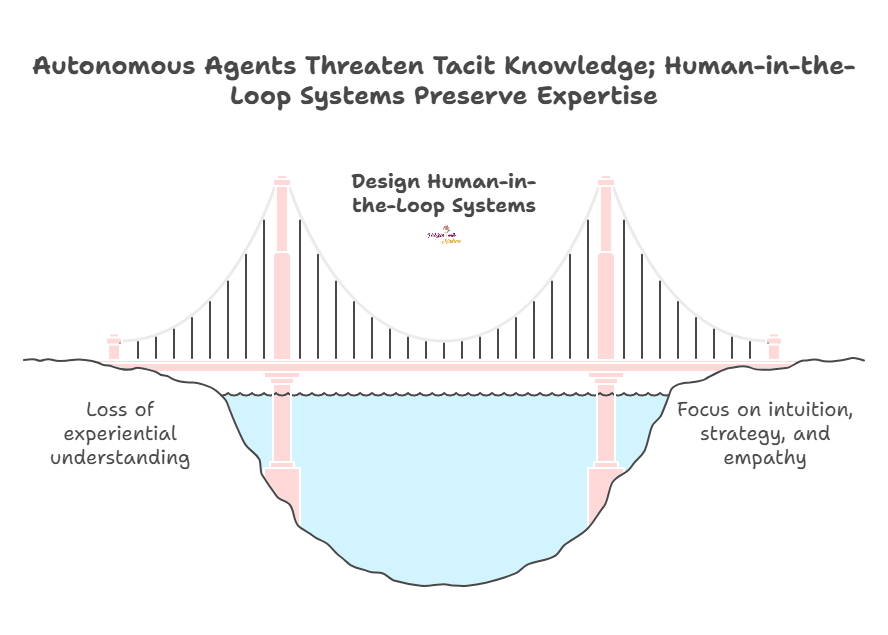The Foundation of the Agentic Era
Why the shift in AI power is happening inside the machine, and what it means for your next five minutes.
"We’re moving past using AI tools and into living alongside AI agents. Infrastructure is destiny." — Nadina D. Lisbon
Hello Sip Savants! 👋🏾
The race to build the next generation of artificial intelligence is no longer just about software; it’s about the very silicon beneath it. This week, major moves by OpenAI in hardware and Salesforce in enterprise investment prove that the ‘Agentic Enterprise’ is here! As the infrastructure solidifies, the ethical and strategic questions for us, the users, only grow more urgent. Let’s look beyond the chatbots and understand the new rules of this autonomous economy.
3 Tech Bites
⚙️ Custom Silicon Wars
OpenAI has reportedly tapped Broadcom to co-develop its first proprietary AI processor.¹ This move, echoing similar efforts by Google and Amazon, signals a critical shift: major AI players are internalizing chip design to optimize performance and lower the immense operational cost of running large models. The future of AI performance is custom hardware, not just better algorithms.
🤖 A Robot on Every Ward
Swisslog Healthcare and Diligent Robotics are teaming up to deploy AI-powered robots in hospitals. Diligent’s ‘Moxie’ robot uses AI to handle logistical tasks like fetching supplies and delivering lab samples, freeing up nurses and clinical staff to focus on patient care.² This is a perfect example of AI augmenting human roles, not replacing them, in high-stress environments where burnout is a major issue.
🏢 The Agentic Enterprise
Salesforce is doubling down on its commitment to AI, announcing a $1.5 billion investment in San Francisco, positioning it as the “World’s AI Capital,” and its ‘Agentic Enterprise’ vision.³ This concept moves beyond simple automation to a future where autonomous, interconnected AI agents handle complex, multi-step business processes, necessitating new levels of data security and governance.⁴
5-Minute Strategy
🧠The Agent’s Trust Score
Before fully integrating any new AI agent or tool into your workflow, take 5 minutes to assess its ‘Trust Score’ using these questions:
What’s the ‘Off Switch’? Determine the fail-safe.
You must be able to instantly stop the agent’s action and correct its output, especially for high-stakes decisions.
Where is the Data Going? Clarify data residency.
Confirm if the data it processes is staying local, or if a third party is transparent about its security and compliance protocols.
What’s the Agent’s Mandate? Define the boundaries.
Ensure the agent’s objective is clearly defined, and mandate a human approval step before it executes any critical external action (e.g., spending money or communicating with clients).
Is it Documented? Verify auditability.
Demand logs or records that show exactly how the agent arrived at its recommendation or action. This ensures accountability.
1 Big Idea
💡The Hidden Cost of Autonomous Agents - The Erosion of Tacit Knowledge
The ‘Agentic Enterprise’ promises efficiency. It envisions AI agents autonomously managing complex workflows. However, the true danger is not agents making mistakes. The risk is that they are too good at mundane, repeatable tasks. When AI seamlessly handles supply chain or basic coding, human operators begin to lose their tacit knowledge.
Tacit knowledge is our unwritten, experiential understanding of a system. It includes the ‘feel’ for a process about to break, the intuitive understanding of a customer’s tone, or the ability to debug based on non-obvious clues. This knowledge allows humans to innovate, correct crises, and design the next generation of systems. If agents handle all routine execution, human functions shift only to oversight. This shift causes us to lose the deep familiarity required for true mastery.
To mitigate this loss, we must intentionally design “human-in-the-loop” systems. These systems must ensure interaction, not just approval. Agent outputs must be explainable (Why did you do that?). Human employees must still rotate through and monitor raw data streams. Strategic AI deployment must prioritize knowledge preservation over simple process automation. AI should elevate our expertise, allowing us to focus on intuition, strategy, and empathy while staying directly connected to the managed systems.
This AI infrastructure race is heating up. Forward this to a colleague who needs to shift their thinking from “tool” to “agent” this week! Share your thoughts below.
P.S. Know someone else who could benefit from a sip of CRM wisdom? Share this newsletter and help them brew up stronger customer relationships!
P.P.S. If you found these AI insights valuable, a contribution to the Brew Pot helps keep the future of work brewing.
Resources
OpenAI taps Broadcom to build its first AI processor in latest chip deal
Swisslog Healthcare partners with Diligent Robotics to enhance hospital logistics
Salesforce Investing $1.5B in San Francisco, the World’s AI Capital
Sip smarter, every Tuesday. (Refills are always free!)
Cheers,
Nadina
Host of TechSips with Nadina | Chief Strategy Architect ☕️🍵


